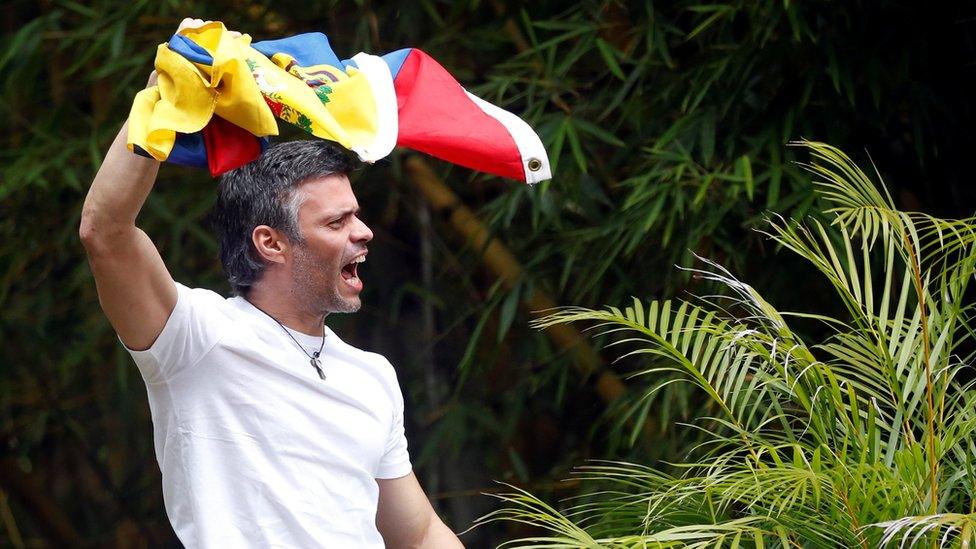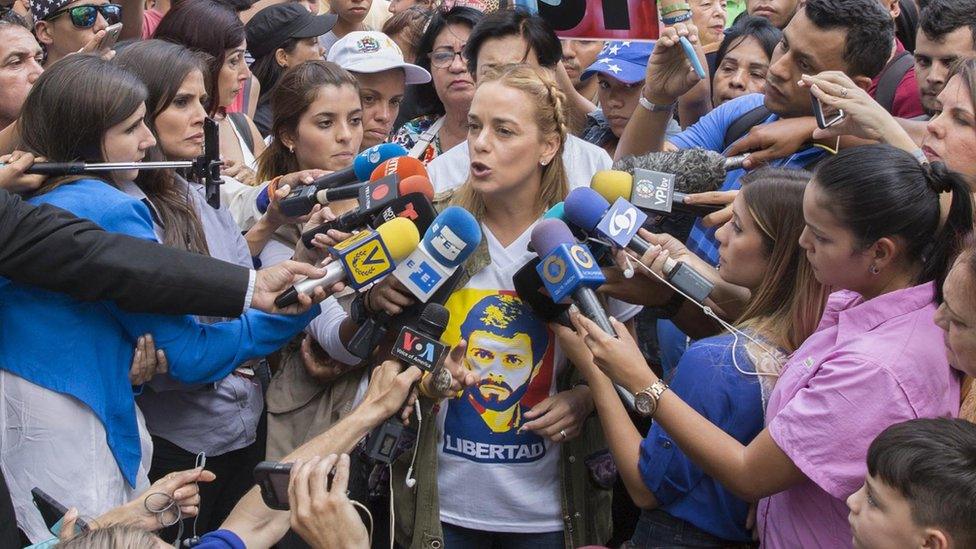Leopoldo López: Venezuela's maverick opposition leader
- Published

Leopoldo López climbed on his roof to greet supporters after being released from prison to house arrest
Venezuelan opposition leader Leopoldo López, who is under house arrest, is considered a political maverick and has long been a thorn in the side of the government.
In 2014, he was jailed for nearly 14 years for inciting violence during mass protests. He served more than three years in a military prison before being transferred to house arrest in July 2017.
Born into a well-off family with links to the business and oil sector, López, now 46, was educated in the United States and has a master's degree from Harvard University.
He came to prominence when he was elected mayor of Caracas's Chacao district, a position he held from 2000 to 2008.
While he was barred from running for re-election in the 2008 polls, for allegedly misusing public funds, he did not retire from public life.
During the protests in 2014, he used social media to found a movement with the hashtag #lasalida, which in Spanish means both "the exit" and "the solution".
His wife, Lilian Tintori, campaigned constantly for his freedom, even meeting US President Donald Trump at the White House. She also used social networks to document her many attempts to visit him in Ramo Verde prison, where, she said, he was kept mostly in solitary confinement.
Following rumours that he had been poisoned and taken to hospital, he released a "proof of life" video of himself in his cell.
Recently he has been sharing calls to action from his home. In long video messages, he urges protesters to take to the street and stand up against President Nicolás Maduro.

Lilian Tintori talking to the press in Caracas in July
In a 2009 classified cable published by Wikileaks, external, the political counsellor of the US embassy in Caracas, Robin D Meyer, wrote that López had become a "divisive figure within the opposition".
"He is often described as arrogant, vindictive, and power-hungry - but party officials also concede his enduring popularity, charisma, and talent as an organiser," the US diplomat wrote.
The Venezuelan government has been quick to remind citizens of the part López played in past unrest.
In 2002, parts of the opposition, backed by elite businessmen and some military leaders, briefly removed then President Hugo Chávez - Nicolás Maduro's late predecessor - from power.
The coup came after street protests, in which López took an active role, prompting the government to label him a "coup leader".
Some Venezuelans considered him a dangerous figure out of touch with the needs of poorer people.
However, his supporters - many of whom are from the middle classes - continue to rally behind him.
He says he is a descendant of the country's independence hero, Simón Bolívar.
Former President Chávez styled his whole "Bolivarian revolution" around the legacy of the 19th Century military leader.